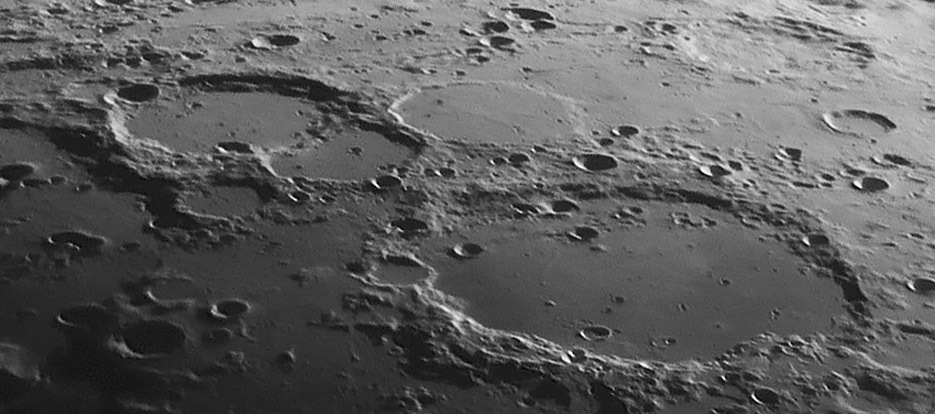Difference between revisions of "September 10, 2011"
| Line 3: | Line 3: | ||
<!-- ws:start:WikiTextHeadingRule:0:<h1> --> | <!-- ws:start:WikiTextHeadingRule:0:<h1> --> | ||
<!-- ws:start:WikiTextLocalImageRule:6:<img src="/file/view/LPOD-Sept10-11.jpg/252530358/LPOD-Sept10-11.jpg" alt="" title="" /> -->[[File:LPOD-Sept10-11.jpg|LPOD-Sept10-11.jpg]]<!-- ws:end:WikiTextLocalImageRule:6 --><br /> | <!-- ws:start:WikiTextLocalImageRule:6:<img src="/file/view/LPOD-Sept10-11.jpg/252530358/LPOD-Sept10-11.jpg" alt="" title="" /> -->[[File:LPOD-Sept10-11.jpg|LPOD-Sept10-11.jpg]]<!-- ws:end:WikiTextLocalImageRule:6 --><br /> | ||
| − | <em>image by [mailto:a.n.zaitsev.glor@gmail.com | + | <em>image by [mailto:a.n.zaitsev.glor@gmail.com Alexander Zaitsev], Lipetsk, Russia</em><br /> |
<br /> | <br /> | ||
I don't know who first compared Phocylides and Nasmyth to the sole of a shoe or a footprint, but it is a good description. The larger Phocylides is the main part of the sole under the ball of a foot, and Nasmyth is the heel. The footprint must have been made by a runner for the sole is more depressed than the heel. Alexander's oblique view shows that the wall between the two parts of the sole is the lowest part of either crater's rim. A vertical [http://the-moon.wikispaces.com/Nasmyth view] shows that Phocylides is younger and overlaps Nasymth, and as commonly happens the overlapping rim is low because there was a void (the Nasmyth crater interior) rather than solid ground resisting it. The fact that Nasymth, Phocylides and nearby Wargentin have different depths shows that they could not have been filled by an interconnected magma source. Other features of interest are nearby. <br /> | I don't know who first compared Phocylides and Nasmyth to the sole of a shoe or a footprint, but it is a good description. The larger Phocylides is the main part of the sole under the ball of a foot, and Nasmyth is the heel. The footprint must have been made by a runner for the sole is more depressed than the heel. Alexander's oblique view shows that the wall between the two parts of the sole is the lowest part of either crater's rim. A vertical [http://the-moon.wikispaces.com/Nasmyth view] shows that Phocylides is younger and overlaps Nasymth, and as commonly happens the overlapping rim is low because there was a void (the Nasmyth crater interior) rather than solid ground resisting it. The fact that Nasymth, Phocylides and nearby Wargentin have different depths shows that they could not have been filled by an interconnected magma source. Other features of interest are nearby. <br /> | ||
<br /> | <br /> | ||
| − | <em>[mailto:tychocrater@yahoo.com | + | <em>[mailto:tychocrater@yahoo.com Chuck Wood]</em><br /> |
<br /> | <br /> | ||
<strong>Technical Details</strong><br /> | <strong>Technical Details</strong><br /> | ||
Revision as of 16:39, 11 January 2015
A Giant Footprint

image by Alexander Zaitsev, Lipetsk, Russia
I don't know who first compared Phocylides and Nasmyth to the sole of a shoe or a footprint, but it is a good description. The larger Phocylides is the main part of the sole under the ball of a foot, and Nasmyth is the heel. The footprint must have been made by a runner for the sole is more depressed than the heel. Alexander's oblique view shows that the wall between the two parts of the sole is the lowest part of either crater's rim. A vertical view shows that Phocylides is younger and overlaps Nasymth, and as commonly happens the overlapping rim is low because there was a void (the Nasmyth crater interior) rather than solid ground resisting it. The fact that Nasymth, Phocylides and nearby Wargentin have different depths shows that they could not have been filled by an interconnected magma source. Other features of interest are nearby.
Chuck Wood
Technical Details
2011/08/25; 01:05:10 UT. SW 305/1500 telescope + VAC-135 (b/w 15 fps) camera with the red filter and barlow 2.5X
Related Links
Rükl plate 70



